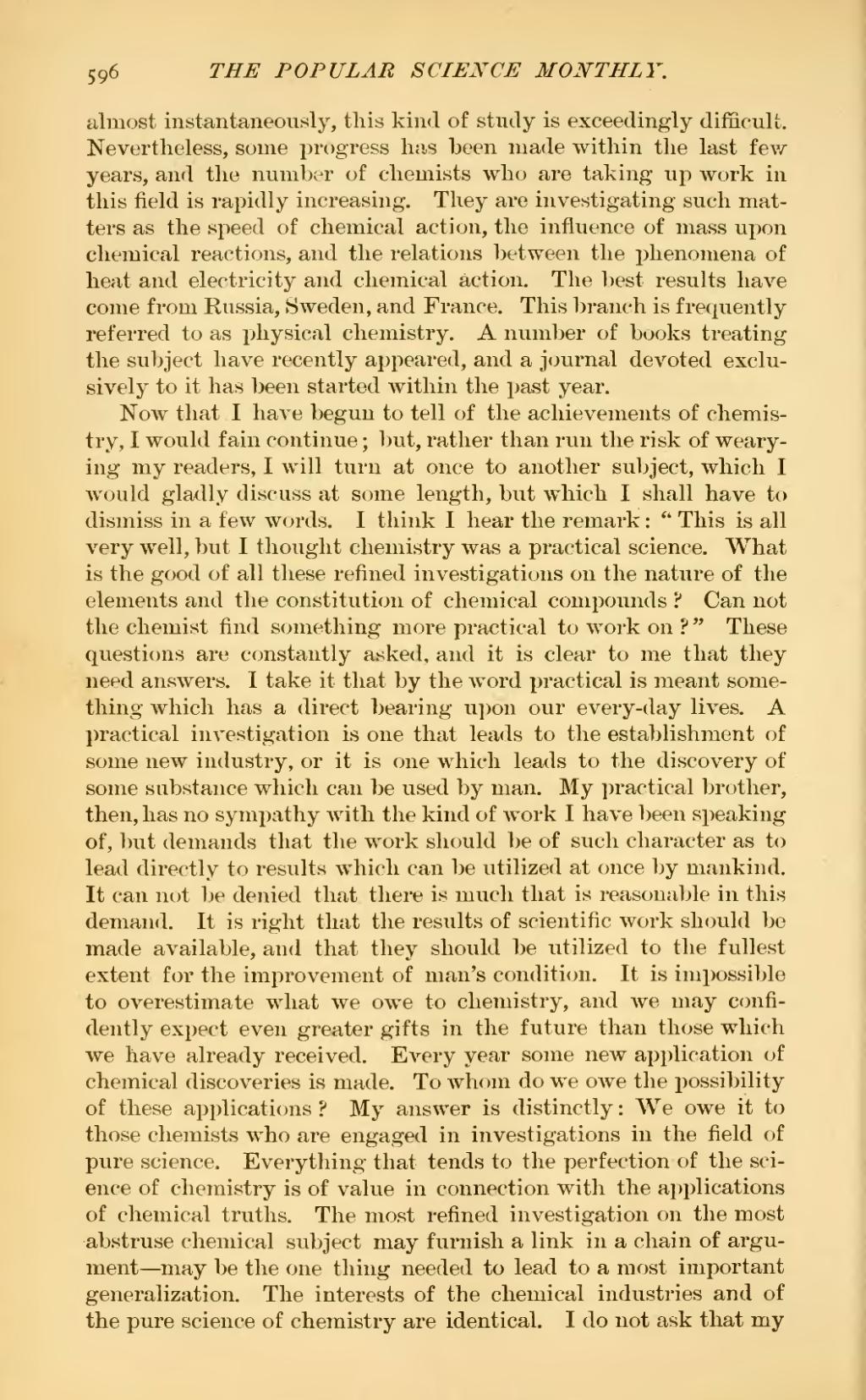almost instantaneously, this kind of study is exceedingly difficult. Nevertheless, some progress has been made within the last few years, and the number of chemists who are taking up work in this field is rapidly increasing. They are investigating such matters as the speed of chemical action, the influence of mass upon chemical reactions, and the relations between the phenomena of heat and electricity and chemical action. The best results have come from Russia, Sweden, and France. This branch is frequently referred to as physical chemistry. A number of books treating the subject have recently appeared, and a journal devoted exclusively to it has been started within the past year.
Now that I have begun to tell of the achievements of chemistry, I would fain continue; but, rather than run the risk of wearying my readers, I will turn at once to another subject, which I would gladly discuss at some length, but which I shall have to dismiss in a few words. I think I hear the remark: "This is all very well, but I thought chemistry was a practical science. What is the good of all these refined investigations on the nature of the elements and the constitution of chemical compounds? Can not the chemist find something more practical to work on?" These questions are constantly asked, and it is clear to me that they need answers. I take it that by the word practical is meant something which has a direct bearing upon our every-day lives. A practical investigation is one that leads to the establishment of some new industry, or it is one which leads to the discovery of some substance which can be used by man. My practical brother, then, has no sympathy with the kind of work I have been speaking of, but demands that the work should be of such character as to lead directly to results which can be utilized at once by mankind. It can not be denied that there is much that is reasonable in this demand. It is right that the results of scientific work should be made available, and that they should be utilized to the fullest extent for the improvement of man's condition. It is impossible to overestimate what we owe to chemistry, and we may confidently expect even greater gifts in the future than those which we have already received. Every year some new application of chemical discoveries is made. To whom do we owe the possibility of these applications? My answer is distinctly: We owe it to those chemists who are engaged in investigations in the field of pure science. Everything that tends to the perfection of the science of chemistry is of value in connection with the applications of chemical truths. The most refined investigation on the most abstruse chemical subject may furnish a link in a chain of argument—may be the one thing needed to lead to a most important generalization. The interests of the chemical industries and of the pure science of chemistry are identical. I do not ask that my

